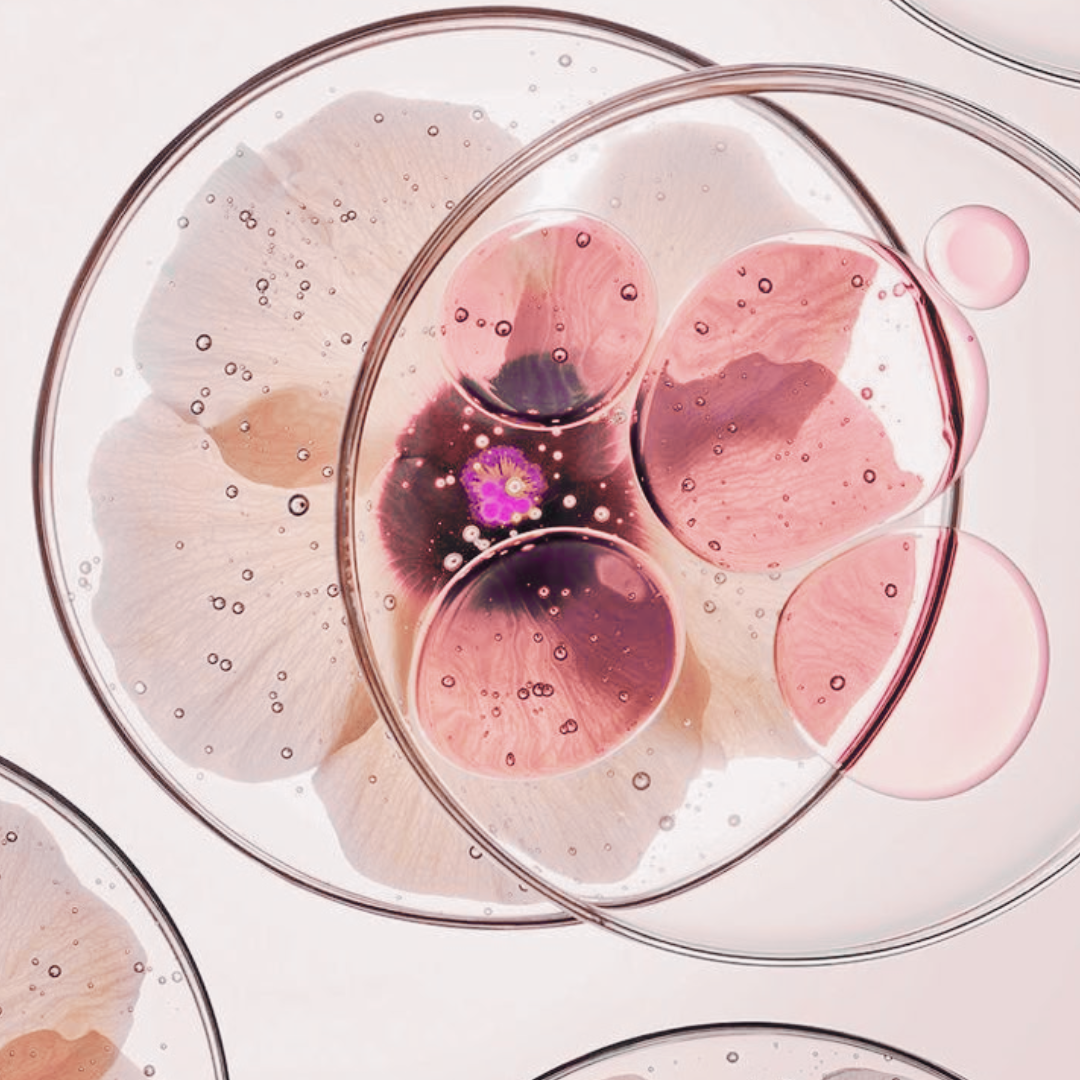Biotechnology is revolutionising the skincare industry, offering innovative, sustainable, and highly effective ingredients. But what does biotech skincare really mean, and is it the future of beauty?
What Is Biotechnology?
At its core, biotechnology in skincare involves using living organisms—such as bacteria, yeast, or algae—to develop active ingredients in a controlled environment. This allows for highly purified, stable, and effective compounds that often have a lower environmental impact compared to traditional extraction methods.
If you’ve encountered terms like “biotech skincare,” “bioengineered actives,” or “lab-grown ingredients,” you’re already witnessing how biotechnology is reshaping the beauty industry.
Let’s explore both the advantages and potential drawbacks of biotech skincare to help you make informed choices.
The Benefits of Biotech Skincare
1. Sustainability and Ethical Sourcing
Biotechnology allows for the production of skincare ingredients without overharvesting natural resources. Traditional ingredient sourcing often leads to deforestation, biodiversity loss, and high water consumption. In contrast, biotech ingredients are grown in controlled environments, reducing strain on the environment.
• Lower land and water usage than traditional farming
• No reliance on endangered plant species
• Vegan-friendly alternatives to ingredients traditionally derived from animals
According to recent studies, biotechnology has the potential to improve the sustainability of the cosmetics industry by reducing the need for harmful synthetic additives and over-extracted botanicals (Ali et al., 2021).
2. Purity, Consistency, and Stability
Unlike natural extracts, which can vary in quality due to environmental conditions, biotech ingredients are produced in highly controlled settings. This ensures:
• Higher purity and fewer contaminants
• More stable formulations with longer shelf life
• Consistent potency in skincare products
For example, biotech-derived hyaluronic acid is produced through fermentation, offering a vegan-friendly, stable, and more effective alternative to traditionally sourced hyaluronic acid.
3. Advanced Skin Benefits
Biotech skincare ingredients are often engineered to enhance absorption, stability, and efficacy. Notable examples include:
• Ectoin – A biotech-derived molecule that protects against pollution, hydrates the skin, and strengthens the skin barrier.
• Bio-fermented peptides – Designed to boost collagen synthesis and skin repair more efficiently than naturally occurring peptides.
• Encapsulated Vitamin C – A synthetic yet highly stable version of Vitamin C that is less prone to oxidation than plant-derived alternatives.
Scientific research has demonstrated that biotech ingredients like Ectoin can protect skin cells from oxidative stress, UV damage, and moisture loss, significantly improving skin resilience.
Potential Drawbacks of Biotech Skincare
1. Cost and Accessibility
The research, development, and production of biotech ingredients can be expensive. This leads to:
• Higher product prices compared to traditionally sourced skincare ingredients
• Limited accessibility, as some biotech ingredients are patented and available only to select brands
2. Limited Long-Term Studies
While biotech ingredients undergo rigorous testing, some newer compounds lack extensive long-term studies compared to ingredients that have been studied and used for decades. Ongoing research is necessary to fully understand their effects on skin over time.
3. Sustainability Trade-Offs
Although biotech skincare ingredients reduce environmental impact, their production still requires energy, lab resources, and raw materials. The sustainability of biotech skincare depends on factors such as:
• The energy used in lab-based production
• The environmental impact of growing microbes for fermentation
• The overall carbon footprint of large-scale biotech manufacturing
4. Skin Compatibility Risks
As with any skincare ingredient, some individuals may experience irritation or allergic reactions. Highly concentrated formulations or newly developed biotech molecules might not be compatible with all skin types. Patch testing is always recommended when introducing new ingredients into your routine.
Is Biotech Skincare Right for You?
Biotech skincare offers a fusion of sustainability, efficacy, and scientific advancement. It’s an excellent choice if you:
• Value eco-friendly skincare solutions that reduce reliance on natural resources
• Prefer scientifically backed ingredients for maximum efficacy
• Want potent, stable, and highly effective skincare formulations
However, if you:
• Prefer ingredients with decades of historical use rather than newer innovations
• Are on a strict budget, as biotech skincare can be more expensive
• Have very sensitive skin and prefer to stick to well-established formulations
Then you may want to opt for a mix of biotech and traditional skincare.
Experience Balanced Skincare with Sekkeizu’s AM Serum
At Sekkeizu, we believe in balance over extremes—which is why our AM Serum is formulated with a thoughtful combination of biotech, plant-derived, and lab-engineered ingredients.
• Ectoin (biotech-derived) – Shields the skin from environmental stressors, strengthens the skin barrier, and provides deep hydration.
• Wild Hibiscus Flower Extract (plant-derived) – A natural antioxidant that supports skin resilience and provides long-term moisture balance in the skin.
Rather than limiting our formulations to just one type of ingredient, we look for a comprehensive solution with proven track records to enhance skin health.
Discover the synergy of science and nature with Sekkeizu’s AM Serum.
Biotechnology is reshaping skincare, offering a sustainable, effective, and scientifically advanced approach to beauty. While concerns about cost, accessibility, and long-term data remain valid, the benefits of biotech skincare are significant.
As research continues to advance, we can expect even more groundbreaking, eco-conscious and skin-friendly biotech innovations in the future. Whether you fully embrace biotech skincare or prefer a mix of natural and lab-engineered ingredients, one thing is certain—the future of beauty is rooted in science.

